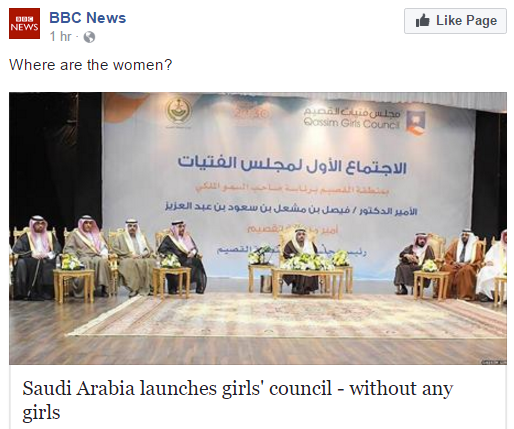[ by Charles Cameron — oy, there’s nuance, even among one’s enemies ]
.
Consider:
The media’s portrayal of jihadi groups’ horrific rule in the Sahel is a double-edge sword in the fight against these armed movements. On the one hand, their typical coverage provides a classic and possibly efficient form of war propaganda, which calls for unity against the common enemy.
But on the other hand, the depiction of Islamist presence and political influence as unequivocally oppressive misses some critical points: namely, the jihadis’ interest in managing their use of coercion rather than just unleashing it; and their ambition to govern aspects of life through both violent and non-violent ways, sometimes in accordance with local customs.
That’s what you’ll find under the subhead Easy narratives vs. difficult thinking in an African Arguments post titled Mali: The stoning that didn’t happen, and why it matters. That’s almost a disappointing headline, isn’t it? I mean, what? — was there nobody there who was without sin to cast the first stone?
**
The idea that there was a stoning — in Mali, which I for one have never visited and was not even remotely thinking about until that headline popped up in my news feed — had a sort of immediate appeal, a frisson, of the type that characterizes clickbait. So I clicked.
Stonings, however, are abhorrent in my culturally conditioned view, and it’s fairly convenient for me to abhor them at a distance when indulged in by those I like to think of unkindly, the damn jihadists.
The thing of it is, there was no stoning.
That’s a hard thing to report, however. Breaking news — no stoning occurred near Aguelhoc in northern Mali — Christiane Amanpour reports!
Reporting that there has been a stoning, on the other hand, by jihadists — those damn jihadists — that’s not only easy to report, it’s welcome news. Somehow. Despite, or perhaps because of, our abhorrence of stoning — as a punishment for adultery — by, and this is the final twist in our abhorrence, those jihadists.
That’s welcome news, even if stoning is unwelcome, as are jihadists, and even if there was no stoning, despite them.
**
Even if sharia law is not the monolith we tend to think it is — and, returning to that African Arguments post — specifically to those punishments “which are mandated and fixed by God and are applicable in cases of fornication, apostasy etc”:
Questions over these penalties (known as had, plural hudud) were debated at length in 2012 when allied Islamist movements occupied Mali’s three main northern regions: Al-Qaeda in the Islamic Maghreb (AQIM) in Timbuktu; the Movement for Unity and Jihad in West Africa (MUJAO) in Gao; and Ansar Eddine in Kidal.
At that time, judiciary decisions were delegated to local Islamic judges (cadis). Crucially, there were many differences in the application of hudud across these three regions. For instance, there were multiple cases of amputations for robbery in Timbuktu and Gao. But in Kidal, Ansar Eddine agreed with local Islamic judges that sentences would be maintained in line with local customs that historically prefer detention over physical punishment.
Oops. As the writers go on to note, there was actually one stoning for adultery in Aguelhoc in 2012, though the one-time leader of the Ansar, Iyad Ag Ghaly, apparently didn’t know about it. And:
Such complexities and variations between regions supposedly governed by the same Shariah provisions demands additional investigation. Why would hudud, a pillar of political and social legitimation across jihadi movements, be suspended in some places but not others?
**
Okay, now I don’t really know who the Ansar are, and if you’d told me they are Malian jihadis and Iyad Ag Ghaly is or was their leader, I wouldn’t off the top of my head imagine he would disfavor huhud pubishments — as mandated by Allah — in favor of detentions.
But Boko Haram.
I’ve heard of Boko Haram, they don’t like western education, and they abducted the Chibok and other girls, marrying some and selling others into sexual slavery, if that’s a valid distinction. They too are, in a word, abhorrent.
And then I read this, in the same article:
In the Lake Chad area, several organisations – including The International Crisis Group – have documented that a significant number of young Kanuri women have voluntarily joined Boko Haram in order to find a suitable husband or benefit from new economic opportunities. For some women living in particularly impoverished rural areas, joining the jihadi insurgency may be more attractive, at least to start, than their daily routine in the strict patriarchy of rural villages.
The idea of members of Boko Haram as suitable husbands somehow hadn’t occurred to me. But then I’m not a young woman, nor even a local.
**
If what I’ve written thus far interests you, I’d encourage you to read the whole article. There was no stoning in Aguelhoc, despite the reports in Agence France-Press (reporting from Bamako) and Radio France Internationale (reporting from Paris), picked up by Le Monde and The Guardian.
In sum:
Most media accounts depict an unequivocal reign of terror under Islamist rule in northern Mali. But field interviews reveal a more ambiguous situation in which egregious violence by radical groups coexists with a non-violent governance agenda and willingness to deliver services.
In central Mali, jihadi movements forcibly gather local population to preach. They also regularly assassinate those perceived to be collaborating with state officials and foreign armed forces. But at the same time, these groups provide mobile justice courts in places where judges have long been absent. They advocate for the suppression of land rights that benefit a tiny and contested aristocracy. They offer much-needed protection to cattle herders during seasonal migrations. And the simplified marriage procedures they impose allow youths to escape elder’s control over marital engagements.
How much simpler the world is, if we see it from a distance.







